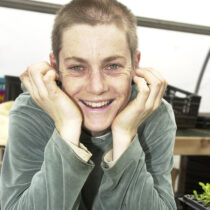The Doldrums
Ground Level
- Publication: East Hampton Press
- Published on: Nov 5, 2024
- Columnist: Marilee Foster
Out of the cover and onto the concrete farm yard come a covey of curious quail. They sidle forward; clown-like, they bump into each other. They select shadows and duck...

 More Posts from Marilee Foster
More Posts from Marilee Foster